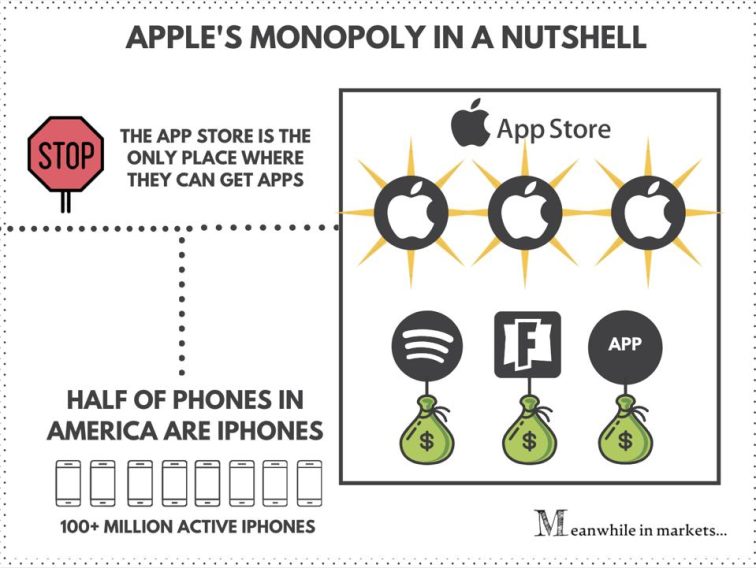Contents
Introduction
I’ve gotta dive into one of the hottest topics in tech today: is Apple a monopoly? It’s a question buzzing around social media and discussion boards, and honestly, as someone obsessed with everything from the iPhone to the MacBook, I find this topic super intriguing. For all of us who are die-hard Apple fans or just curious about the brand, we must peel back the layers of Apple’s market dominance. In this article, I’ll break down various perspectives, legal considerations, and even alternatives to Apple products. Let’s get started!
Perspectives on Apple’s Monopoly

Justification of Apple’s Monopoly
Many people argue that Apple’s market position is justified. On platforms like Reddit, users are heatedly discussing how the integrated ecosystem of Apple products, like the iPhone, iPad, and AirPods, creates a seamless user experience. They point out that the ecosystem makes switching brands feel like throwing away a part of your life.
Block quote:
> “Once you go Apple, you never go back!”
This sentiment really shows Apple’s powerful grip on its customers. But is it purely the quality that keeps buyers in? Innovation is certainly part of it. The App Store regulations are another significant factor. By curating apps and establishing stringent guidelines, Apple not only maintains a high standard but also boosts its revenue. So, while critics claim it stifles competition, supporters argue it’s essential for consumer protection.
Apple’s competitive advantages are tough to ignore. They include brand loyalty and an incredibly polished ecosystem. It’s no wonder they have a monopoly status in certain segments. According to a commentary from the Cato Institute, Apple’s approach underlines that market share alone isn’t enough for a monopoly claim; it’s also about consumer benefits.
Economic Implications of Apple’s Market Dominance
With Apple holding such a significant share of the market, it’s crucial to understand the economic implications that come along with it. For instance, consumers have a wealth of choices when it comes to tech, but when you look at products like the iMac or the MacBook, Apple often stands alone in pricing and features.
When discussing consumer choice, it’s vital to mention how brand loyalty and price points influence buying decisions. Sure, you could argue there are alternatives, but brands like Samsung or Google don’t always match up to Apple’s integrated experience. So, while it may seem like there are plenty of options, Apple’s dominance makes them feel fewer.
Ultimately, it seems that Apple is carefully walking the line between providing quality and holding too much power. Innovations and benefits exist, but they’ve created a scenario where they can, at times, dictate market rules. This brings us to the legal side of things.
Legal Considerations

Discussion of Illegal Monopoly Claims
Now, it wouldn’t be complete without addressing the elephant in the room: the legal implications of whether Apple is an illegal monopoly. Quora discussions showcase a range of thoughts on Apple’s practices, especially regarding their App Store policies. Critics point to the restrictions imposed on developers as prime examples of anti-competitive behaviors.
Is their control over apps really in the interest of consumers? That’s up for debate. As highlighted in the legal circles, cases against Apple’s business model are increasingly common, indicating that the question of their monopoly status isn’t going away anytime soon.
This controversy goes way beyond just tech. When you have brands like Facebook and Amazon also facing scrutiny, the implications start radiating across the tech landscape. Keeping tabs on Apple’s legal maneuvers offers insight into how regulations are evolving in response to monopolies.
Alternatives to Apple Products

Overview of Competitors Discussed
Okay, let’s keep it real: While Apple has dominated our minds and wallets, there are competitors out there! For instance, Android devices offer different ecosystems and sometimes at lower price points. Brands like Samsung, Google, and even OnePlus are seriously vying for a share of the pie.
Comparison with Other Brands
So, here’s a quick rundown:
– Samsung: Known for its flexible pricing options and features, it offers good competition, especially in the smartphone arena.
– Google’s Pixel: While it’s not the market leader, it provides an experience tailored to pure Android, which some users desire.
– OnePlus: Often comes in with high-spec devices at lower prices, appealing to those wanting something different without the Apple premium.
However, here’s the kicker—while these brands offer alternatives, many people don’t feel the same affinity for them. That brand loyalty Apple cultivates keeps many of us returning for more.
So yes, alternatives exist, but will they ever truly dethrone the Apple kingdom? Pretty debatable!
Conclusion
In this exploration of whether Apple is a monopoly, it’s clear that this is more than just a simple yes or no. There are layers to this issue, from user experience to legal battles and market dynamics. I’d love to hear your thoughts! If you have comments, questions, or want to dive deeper into Apple chats, drop them below! And don’t forget to check out more informative content at iphone7price.org!



